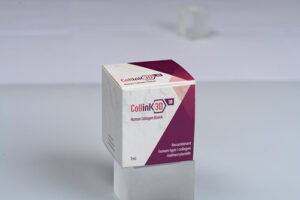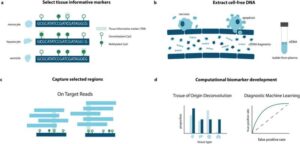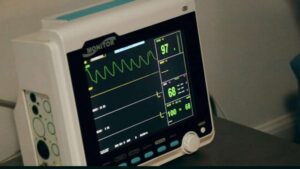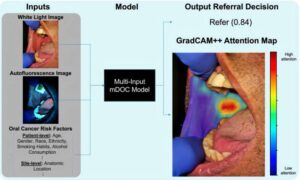MedTech News
.................... by Andrew Celentano

Brain Cells on a Computer Chip Offer Advanced Medical Treatments and Use Less Energy
Learn more about the new biological computer that fuses brain cells and computer chips — and uses far less energy. Cortical Labs, a startup based in Australia, has developed what it describes as a “code-deployable biological computer.” Called CL1, the technology is a type of synthetic biological intelligence consisting of a combination of real neural networks and computer chips.

First-in-Kind Fully Humanized 3D Bioprinted Human Skin Model Developed by Mayo Clinic Researchers using CollPlant’s rhCollagen-Based BioInk
REHOVOT, Israel, Oct. 16, 2025 /PRNewswire/ — CollPlant Biotechnologies (NASDAQ: CLGN), a regenerative and aesthetic medicine company developing disruptive technologies and products based on its proprietary, non-animal recombinant human collagen (rhCollagen), today announced that, according to a scientific article published in the Archives of Dermatological Research, researchers from Mayo Clinic have developed the first fully humanized 3D bioprinted skin model using CollPlant’s plant-derived rhCollagen.

Hair-thin electrode extends brain signal recording duration three-fold
The rapid progression of an aging society has led to a sharp rise in patients with neurodegenerative diseases such as dementia and Parkinson’s disease, making it a critical issue in health care and welfare.

AI-assisted growth prediction advances orthodontics
Orthodontic treatment is most effective when timed to coincide with a child’s growth peak. Traditionally, clinicians estimate growth by examining X-ray images of the cervical vertebrae—the neck bones visible in routine dental radiographs. However, this process requires careful manual annotation of specific points on the bones, a task that is both time-consuming and prone to variation between observers.

Smartphone-based relaxation program reduces disability for emergency department migraine patients
A smartphone app for muscle relaxation significantly reduced migraine-related disability in patients visiting the emergency department, a new study shows.

Simple blood test shows promise in detecting amyotrophic lateral sclerosis early
New research by UCLA Health has found a simple blood test could provide faster and more accurate diagnosis of ALS by measuring cell-free DNA. The noninvasive test could not only allow neurologists to rule out other neurological diseases but also detect ALS disease earlier to provide better treatment and potentially improve life expectancy.

AI analyzes world’s largest heart attack data sets—and reveals new treatment methods
A landmark international study led by the University of Zurich has shown that artificial intelligence can assess patient risk for the most common type of heart attack more accurately than existing methods. This could enable doctors to guide more personalized treatment decisions for patients.

Smartphone imaging system shows promise for early oral cancer detection in dental clinics
Oral cancer remains a serious health concern, often diagnosed too late for effective treatment, even though the mouth is easily accessible for routine examination. Dentists and dental hygienists are frequently the first to spot suspicious lesions, but many lack the specialized training to distinguish between benign and potentially malignant conditions.
